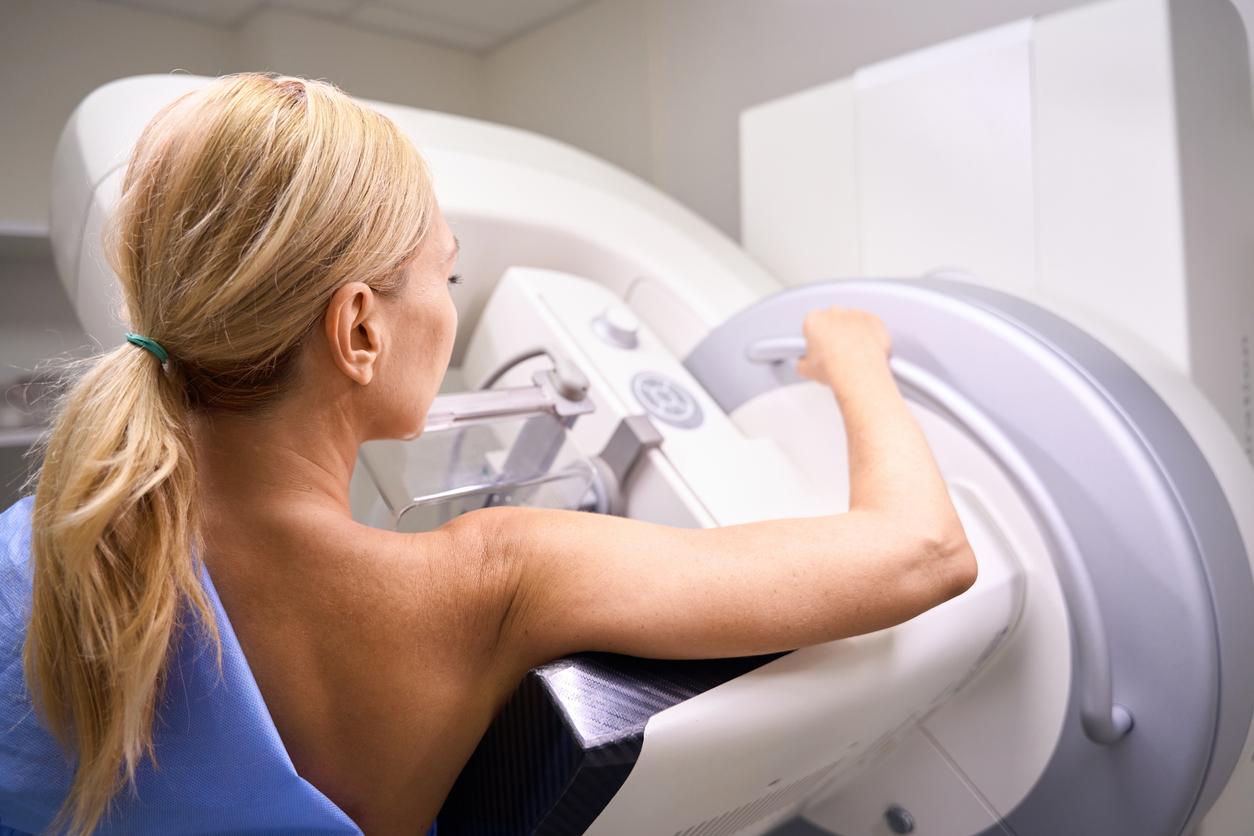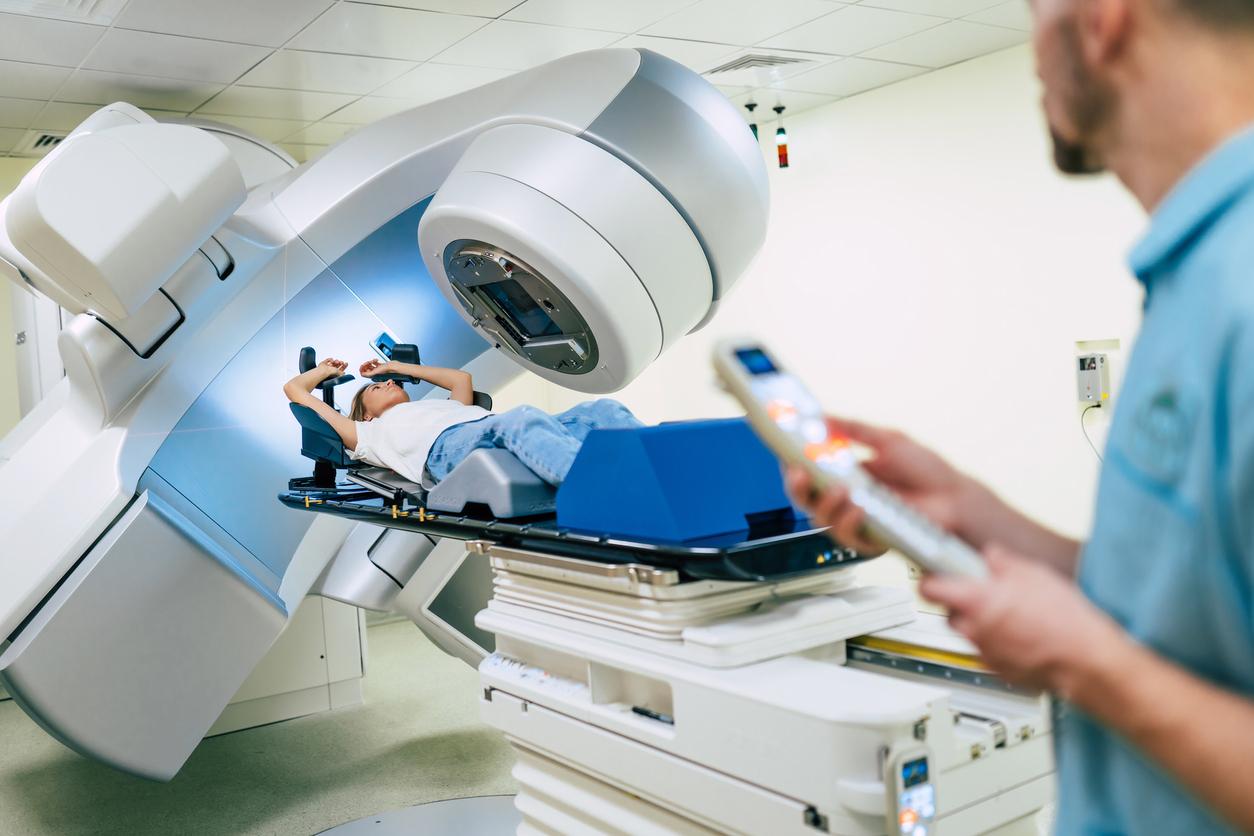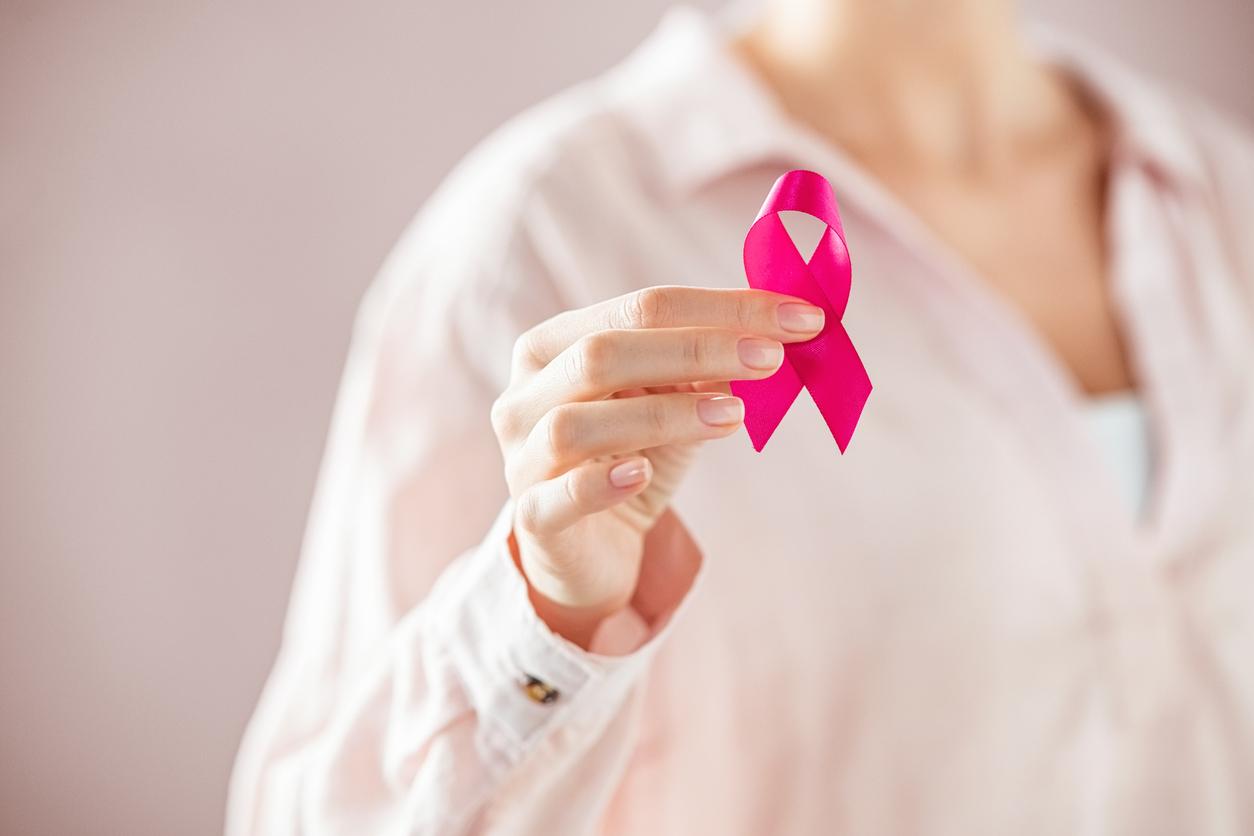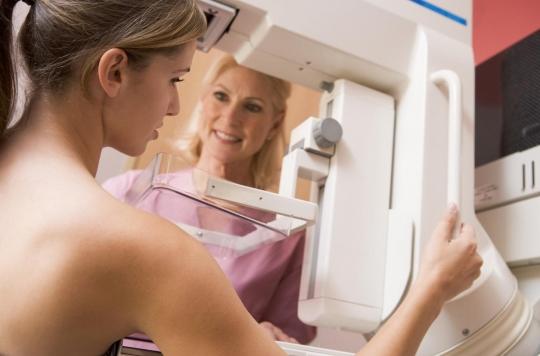In breast cancer surgery, outpatient management is increasingly indicated. Coming home in the evening is not only a comfort, but also a guarantee of quality.
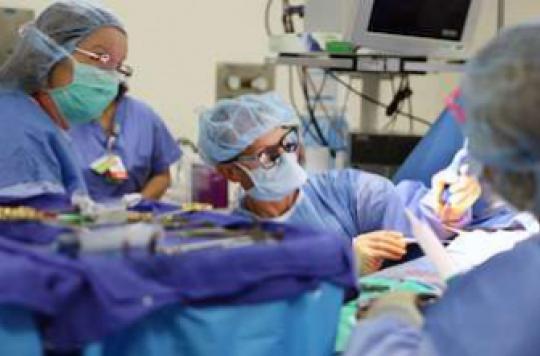
Is the outpatient clinic the future of breast cancer treatment? The question is appropriate since theCurie Institute opens on September 26 its first conference ” Breast cancer and day surgery. “France is far behind in this area compared to Europe: in the centers for the fight against cancer (CLCC), 17% of patients with a breast tumor are operated on on an outpatient basis, that is to say that they leave the hospital on the day of the operation. But the objectives posted by the government are ambitious: the Cancer Plan 2014-2019 aims to achieve one in two out-patient operations.
A very structured course
At the Institut Curie (Paris), at Léon-Bérard center (Lyon, Rhône), at theMontpellier Cancer Institute (Hérault), the example is given: 40 to 50% of breast cancer surgeries are performed on an outpatient basis. In the last establishment, a dedicated outpatient unit has even been built: only patients who leave the hospital before dark are received, an operating room and a recovery room are reserved for them.
The care pathway itself is being redesigned in the outpatient surgery units. The patient arrives in the morning. In some cases, such as at the Léon-Bérard center, she goes to the operating room on foot (this is the “patient standing” method). After the operation, each patient is monitored in the recovery room, then in his room. Several points make it possible to check whether she is fit to leave the establishment: nausea, vomiting, pain, discomfort when getting up, low blood pressure, etc. If only one of them is negative, the patient stays, otherwise, she can go out with a companion. . 24 hours after the operation, a nurse recontacts the patient and asks her very specific questions: does she suffer from nausea, vomiting, how does she rate her pain out of 10, what is the appearance of her scar …
The post-operative follow-up is not changed one iota: a consultation 15 days after the operation. In fact, the complications, in addition to being rare, appear several days after the operation. So no need to stay overnight in the hospital.
A particularly indicated disease
Chemotherapy and radiotherapy have long been carried out in day hospitals. More and more, the outpatient clinic is expanding to oncological surgery, particularly senological surgery. “This organization lends itself a lot to breast cancer surgery”, underlines the Prof. Philippe Rouanet, coordinator of the oncological surgery pole at the Montpellier Cancer Institute (ICM), contacted by why actor. “It is not very traumatic, limited in time, rather superficial compared to digestive surgery for example. This is handled very well from a technical point of view. Despite everything, there are obstacles to outpatient surgery.
Listen to Prof. Philippe Rouanet, head of the oncological surgery center at the Montpellier Cancer Institute: “ Operating on a woman who weighs 60 kg and has an 85B has nothing to do with operating a patient weighing 100 kg and has a 120E. “
“A great organizational revolution”
One in two patients is operated on as an outpatient in the most innovative CLCCs. However, “currently, any patient can benefit from it if she does not present any comorbidity, which concerns 80% of patients”, specifies the Dr Séverine Alran, head of the outpatient surgery unit at Institut Curie, contacted by why actor. The day hospital is set to become the standard across the country, she believes. the Dr. Frédéric Beurrier, surgeon at the Léon-Bérard center, confirms this: since the outpatient clinic is automatically indicated, he faces very little reluctance. “The fearful saw that they had no reason to be afraid, and those who were in favor were satisfied with the comfort of returning home. ”
However, outpatient care requires a “great organizational revolution” according to the Dr Alran. “It is the entire architectural structure of the hospital that must be reviewed,” she adds. “The outpatient clinic makes it possible to refocus the mission on care, it is to rethink hotel reception and transport. Beds disappear or shrink sharply, and armchairs replace beds. It is therefore the entire architectural structure that must be changed, which does not happen overnight. “
Listen to Dr Séverine Alran, head of the outpatient surgery unit at Institut Curie: “ It is a multidisciplinary and multi-professional reorganization. The ambulatory can only be conceived in a collective energy. “
A more “educated” patient
Another advantage of the outpatient clinic: the patient is at the heart of the care pathway. “We give knowledge to the patient, we do not infantilize him”, underlines the Dr Alran. “We do not do therapeutic education in the sense that the High Authority of Health understands it, but we provide learning support: we deliver information, we explain under what conditions we must call”, adds the Dr Frédéric Beurrier, surgeon at the Léon-Bérard Center in Lyon, contacted by why actor.
The application spectrum of the outpatient is very wide: the majority of patients benefit from “conservative treatment” (removal of the tumor and surrounding tissues, without mastectomy), but it is possible to consider treatment in day hospital for women undergoing mastectomy. Institut Curie does this, only at the request of patients. The Léon-Bérard center has also tested it. “Technically, the test was convincing, but there is a psychological limit”, tempers the Dr Frédéric Beurrier. “The impact on body image is very difficult. The extension of the indication is therefore not on the agenda, especially since it will be necessary to develop less heavy anesthetic methods, according to the Dr Alran. On the other hand, axillary dissection could quickly be performed on an outpatient basis.
The figures themselves point to the generalization of outpatient surgery in breast cancer surgery.
Listen to Dr Séverine Alran, head of the outpatient surgery unit at Institut Curie: “ We have a re-hospitalization rate of less than 1% and no case of infection of the surgical site. “
As for the patients, their feedback is also positive: 95% of the patients questioned by the Montpellier Cancer Institute said they were satisfied with their experience. “The feedback is extremely favorable,” enthuses Professor Rouanet. An opinion shared by other surgeons, but also the patients themselves: according to a recent survey, 80% of French people favor outpatient surgery, and as many consider it preferable in the event of cancer. And for good reason: all the doctors agree in saying it, going home after an intervention on a tumor relativizes the gravity of the disease.
.









